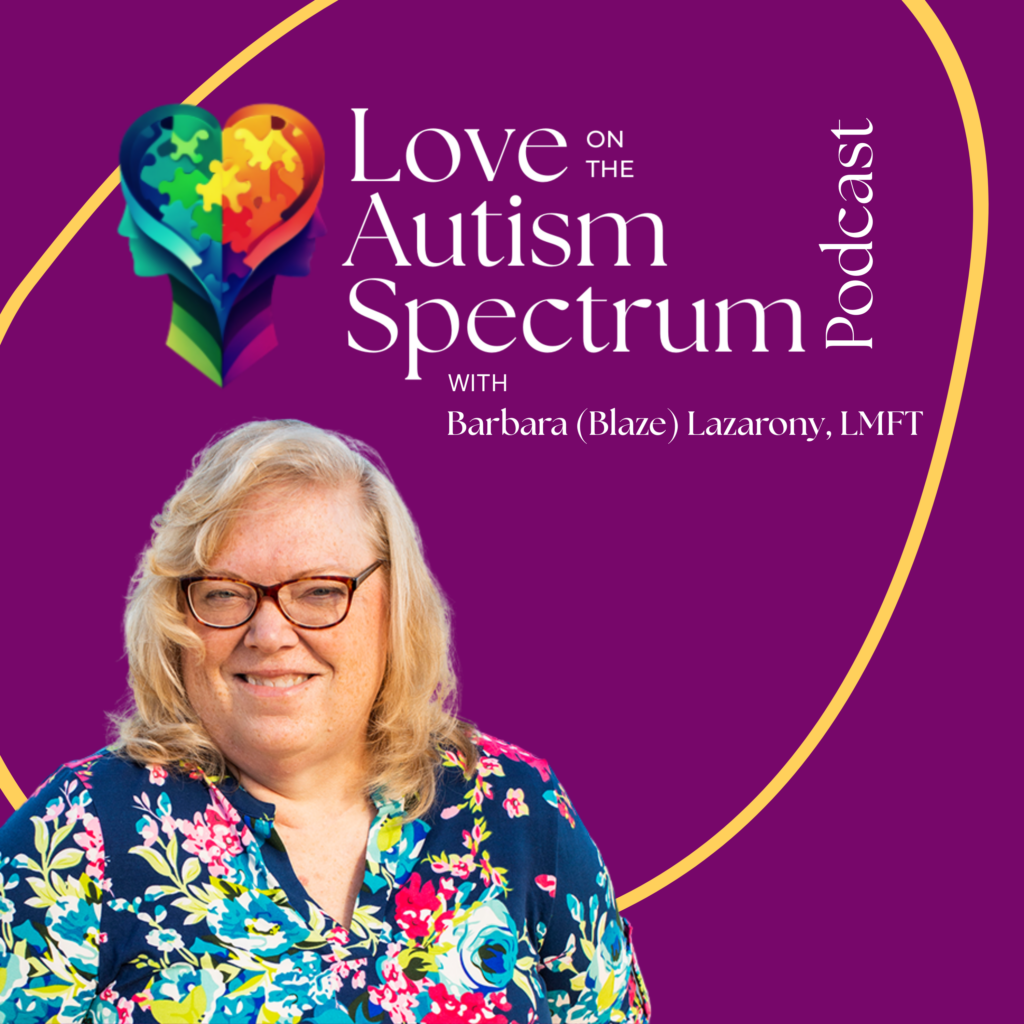A late-in-life autism diagnosis can be life-changing. Autism is one of several neurodevelopmental disorders that can be diagnosed later in life. It can change how you see yourself and how you understand your past.
Many adults live with undiagnosed autism, which can impact their mental health and overall well-being. Identifying undiagnosed autism, especially in young adult and females, can lead to appropriate treatment and a better understanding of longstanding symptoms.
This guide will help you navigate the emotional, relationship, and practical changes accompanying this new chapter in your life. Learn to embrace your evolving identity and improve your quality of life.
Key Insights
- A late autism diagnosis can have a significant impact on mental health, often resulting in higher levels of anxiety and depression due to years of misinterpretation and misdiagnosis.
- Building strong communication and support networks is vital for autistic adults after a diagnosis, helping navigate social communication challenges and reduce feelings of isolation.
- Understanding developmental disorders, including autism, and accessing the right resources can improve the quality of life for late-diagnosed adults, promoting acceptance and resilience. Historically, autism research has focused on male participants, which has led to an incomplete understanding of autism traits in adults.
Late Autism Diagnosis
What is a Late-in-Life Autism Diagnosis?
A late-in-life autism diagnosis is the identification of Autism Spectrum Disorder (ASD) in adults. Many adults, particularly those over 50, receive a diagnosis after living undiagnosed for years, which can be transformative. This diagnosis can be the result of many factors, including a lack of awareness, previous misdiagnoses, or the individual’s ability to mask autistic traits.
Receiving a diagnosis of autism assessment or later in life can provide clarity and a deeper understanding of lifelong challenges. However, it can also present challenges in adjusting to this new understanding and dealing with the implications for relationships and social connections. It can elicit complex emotions, including relief and many other feelings. Recognizing the signs of autism spectrum disorder later in life can help individuals understand their experiences and seek the proper support.
Prevalence of Autism Spectrum Disorder in Adults
Why Is It Important to Understand Late Autism Diagnosis?
It is important to understand late autism diagnosis for several reasons.
Firstly, it allows individuals who have been misdiagnosed or undiagnosed with neurodevelopmental conditions to receive an accurate assessment, providing access to the support and services they need. This can have a profound impact, significantly improving mental health and overall well-being.
Secondly, raising awareness about autism in adults helps to reduce stigma and promote acceptance, highlighting that autism spectrum disorders are not limited to children but can affect individuals of all ages.
Finally, it provides healthcare professionals, educators, and policymakers in the national autistic society with the knowledge they need to address the unique needs and challenges faced by autistic adults, ensuring they receive the understanding and care they deserve.
Late Autism Diagnosis and Mental Health
An autism spectrum disorder diagnosis later in life can have a significant impact on mental health. Autistic females tend to mask their symptoms and camouflage their repetitive behaviors to fit in socially, leading to delayed diagnoses and mental health challenges. Historically, autism research has focused on male participants, which has led to the misdiagnosis and misunderstanding of autism in females. While the diagnosis may bring relief, it can also trigger a complex array of emotions and mental health concerns. Individuals diagnosed later in life often experience a higher prevalence of co-occurring mental health disorders, such as anxiety and depression, compared to those diagnosed earlier. This is due mainly to the years of misunderstanding and misdiagnosis that can significantly impact one’s mental well-being.
The escalation of mental health issues can be particularly swift in adults diagnosed later, often leading to increased psychiatric conditions. Realizing missed opportunities for early intervention can evoke feelings of loss, low self-esteem, and challenges in executive functioning and self-acceptance. If left unaddressed, these emotional and behavioral, pose challenges that may intensify with age. Therefore, addressing mental health concerns is crucial for enhancing quality of life and promoting personal growth following a diagnosis.
Navigating the emotional terrain of a late autism diagnosis requires understanding and support. The diagnostic process involves exploring emotional reactions and developing strategies to address anxiety and depression, which are essential components of this journey.
Emotional Responses to Diagnosis
Receiving a late autism diagnosis can elicit a complex emotional tapestry for autistic people. Many individuals experience a blend of positive and negative feelings, including:
- relief
- validation
- shock
- disappointment
- sadness
- grief
- anger
The historical emphasis on autism research focusing on autistic males has contributed to a lack of understanding and support for females, influencing their emotional responses to a late diagnosis.
For some autistic people, the diagnosis fills a void and validates their struggles, fostering a sense of peace and understanding. Conversely, the realization that past difficulties stem from unsupported neurodivergence and mental disorders can lead to overwhelming emotions such as sadness, grief, and anger.
These emotional reactions are integral to the broader diagnostic experience. Upon receiving a diagnosis, many autistic people grapple with reconciling their new identity with their past experiences. This journey often involves navigating mood disturbances and other mental health conditions associated with the later-in-life diagnosis process. Acknowledging and accepting these emotions is the first step toward personal growth and mental well-being.
Tackling Anxiety and Depression
Anxiety and depression are prevalent mental health concerns among individuals diagnosed with autism later in life, including autistic children. Effectively addressing these issues is essential for managing daily challenges and enhancing overall quality of life. Emotional and psychological support, such as joining support groups, can provide invaluable resources for processing feelings and developing coping strategies.
Recognizing personal characteristics, strengths, and challenges is vital for enriching life experiences. Learning from fellow autistic individuals and engaging with health care professionals and psychology can aid in managing mental health conditions. This holistic approach not only addresses anxiety and depression but also fosters resilience and self-acceptance.
Navigating Relationships for Autistic Adults After Diagnosis
A late autism diagnosis can significantly influence personal relationships. For many, articulating personal needs to friends and family becomes daunting, leading to potential misunderstandings and social isolation. Autistic adults often struggle to grasp others’ emotions, complicating communication in personal relationships. This can strain connections and exacerbate feelings of social anxiety and isolation due to missed early interventions. Social skills training can be beneficial in improving communication and reducing misunderstandings.
Building robust support networks and enhancing communication skills are essential. This guide will delve into specific communication challenges and the importance of support networks.
Communication Hurdles
Communication can pose a significant challenge for autistic adults, particularly those diagnosed later in life. Understanding unspoken social cues and interpreting body language and tone are often areas of difficulty that complicate social interactions. Many autistic individuals find initiating conversations challenging, leading to feelings of social awkwardness. Additionally, heightened sensory sensitivities can result in discomfort in social settings, further complicating interactions.
Utilizing visual aids can enhance understanding and communication for autistic adults. While making eye contact may be challenging, it can improve social interactions. Implementing these strategies can alleviate communication difficulties.
Cultivating Support Networks
Establishing strong support networks is crucial for autistic adults, especially following a late diagnosis. Peer support groups play a vital role in helping individuals cope with anxiety and depression, providing a sense of belonging and reducing feelings of isolation. These groups offer companionship and shared experiences, instrumental in fostering self-esteem and mitigating self-doubt.
Online communities can also be valuable resources and connections for those navigating post-diagnosis. Engaging in supportive communities, whether in person or online, helps individuals counter self-doubt and fosters an environment conducive to personal growth.
Practical Adjustments and Daily Life Considerations
A late autism diagnosis often necessitates significant adjustments in daily life. Many adults with undiagnosed autism face challenges in receiving appropriate treatment for associated mental health issues, and recognizing their underlying autism can lead to a better understanding and management of longstanding symptoms. Navigating social relationships, employment, and daily tasks can be particularly challenging, impacting overall well-being and quality of life. Higher rates of unemployment and poor health outcomes are linked to late diagnoses due to reduced access to necessary interventions. Finding strategies that resonate with the individual is crucial for fostering resilience and managing these adjustments. Occupational therapy can provide strategies to manage daily tasks and improve overall well-being.
Understanding and addressing these practical implications can enhance outcomes and quality of life. The following subsections will discuss accessing healthcare and support services and the importance of workplace accommodations.
Accessing Healthcare and Support Services
The historical focus of autism research on males has resulted in inadequate support and a lack of tailored diagnostic criteria for females, complicating their access to healthcare and support services. However, I specialize in offering ASD and ADHD assessments; please click here to learn more. A formal adult autism diagnosis empowers individuals to advocate for their needs and seek tailored support from available resources.
Workplace Accommodations
Workplace accommodations, including reasonable adjustments, can enhance job stability and performance for individuals with late autism diagnoses. These accommodations include flexible hours, a quiet workspace, and clear task communication. Understanding rights under the ADA is vital for improving employment experiences.
Awareness of these rights empowers individuals to advocate for necessary accommodations at work. This enables them to perform at their best and feel more supported, leading to improved outcomes and a more inclusive work environment.
Employment and Education Challenges
The Advantages of Receiving a Diagnosis Later in Life
Despite the challenges, a late autism diagnosis offers substantial benefits. For many, it reshapes self-identity and prompts a reevaluation of past relationships and challenges. An official diagnosis can bolster self-esteem and clarify personal experiences.
Understanding the unique perspectives of autistic individuals promotes a more inclusive society. Recognizing and valuing these perspectives can help dismantle societal stigma. Embracing neurodiversity can enhance community understanding and acceptance of the contributions made by autistic individuals.
Self-Awareness and Acceptance
A diagnosis can help individuals reframe their identity and embrace their strengths, aiding in identity formation and self-acceptance. It can alleviate shame and foster a positive self-narrative. Many report that receiving a diagnosis leads to a stronger sense of self-acceptance and increased self-empathy after the diagnosis.
This newfound self-awareness allows individuals to articulate their experiences more effectively and fosters a sense of belonging. Understanding one’s core disorder can bolster self-esteem and enhance social skills, ultimately improving mental health and overall well-being.
Enhanced Coping Strategies
An autism diagnosis can pave the way for effective coping mechanisms, enhancing life quality. Understanding personal strengths and challenges aids in developing better coping strategies post-diagnosis.
Accessing appropriate support and therapeutic interventions are essential steps toward improved outcomes. These strategies help individuals manage their daily lives more effectively and foster resilience and personal growth.
The Journey Towards Acceptance
After receiving a late autism diagnosis, individuals often find themselves reevaluating their sense of self and reframing their identity. This journey can lead to self-discovery, self-acceptance, and improved self-esteem. Acceptance is a crucial component of the emotional journey following a late autism diagnosis, allowing individuals to embrace their neurodivergent identity and recognize their intrinsic value.
The following subsections will explore strategies for overcoming stigma and self-doubt and the importance of celebrating neurodiversity.
Overcoming Stigma and Self-Doubt
Self-acceptance is vital for combating stigma and building self-confidence after a late diagnosis. Recognizing unique strengths and seeking support from loved ones, support groups, or therapists can empower individuals to overcome self-doubt and bolster self-esteem.
Addressing mental health concerns and understanding that particular challenges are part of the autism spectrum can aid individuals in building emotional resilience and navigating their journey toward acceptance. Building self-esteem is a continuous process that requires patience and perseverance.
Celebrating Neurodiversity
Receiving a diagnosis later in life can lead to improved self-understanding and access to appropriate support. A late autism diagnosis can help individuals develop better coping strategies, enhancing their quality of life.
Embracing neurodiversity and fostering inclusive communities can significantly enhance the quality of life for autistic individuals. Addressing the stigma associated with autism allows individuals to overcome self-doubt and build confidence. Acknowledging and celebrating the diverse perspectives and contributions of autistic individuals enriches society as a whole.
Summary
Receiving a late autism diagnosis can be both challenging and transformative. It brings clarity and understanding to past experiences while presenting new mental health and practical challenges. However, navigating these challenges successfully with the proper support and strategies is possible. From building support networks to accessing healthcare and workplace accommodations, each step toward self-awareness and acceptance is crucial.
Embracing neurodiversity and fostering inclusive communities can significantly enhance the quality of life for autistic individuals. By understanding and valuing the unique perspectives of autistic adults, we can create a more inclusive and supportive society.
Frequently Asked Questions
What are the common emotional reactions to receiving a late autism diagnosis?
Receiving a late autism diagnosis often elicits a complex emotional blend of relief, validation, and shock, along with feelings of disappointment, sadness, grief, and anger. Acknowledging these emotions as part of the journey toward understanding and acceptance is essential.
How can anxiety and depression be managed post-diagnosis?
Effectively managing anxiety and depression, post-diagnosis can be achieved by accessing mental health services, emotional health, and educational services, and peer support, as well as joining support groups. These connections can provide valuable strategies and shared experiences that foster healing.
What are the benefits of receiving an autism diagnosis later in life?
Receiving an autism diagnosis later in life can lead to enhanced self-awareness and improved self-esteem, as well as access to crucial support services and better coping strategies. These benefits can significantly improve the quality of life and foster personal growth for individuals on the spectrum.
Why is celebrating neurodiversity important?
Celebrating neurodiversity is essential because it recognizes and values the unique perspectives and contributions of autistic individuals. This ultimately enriches society, and embracing these differences fosters inclusion and understanding, supported by strong community support.









